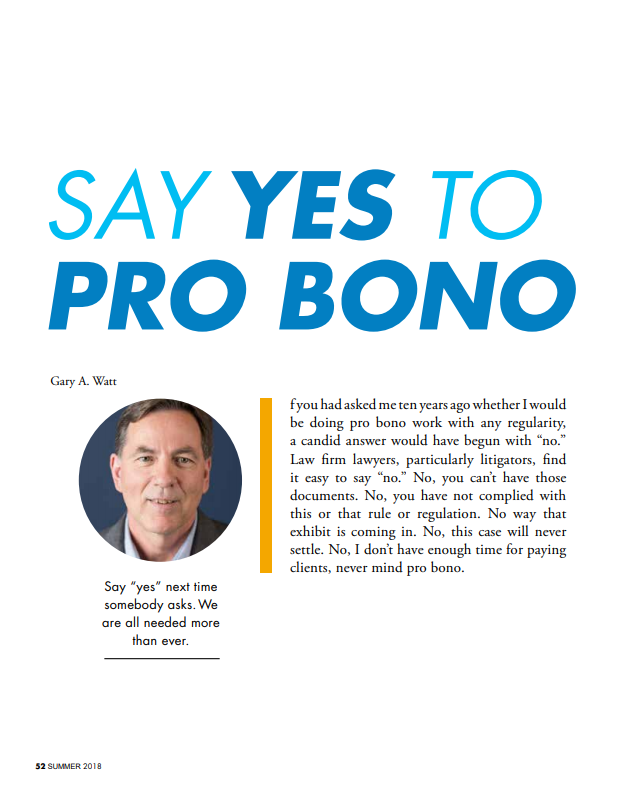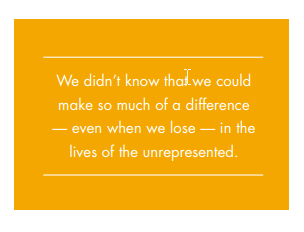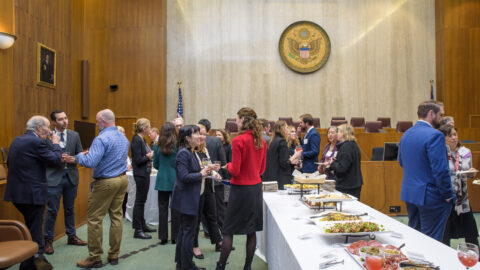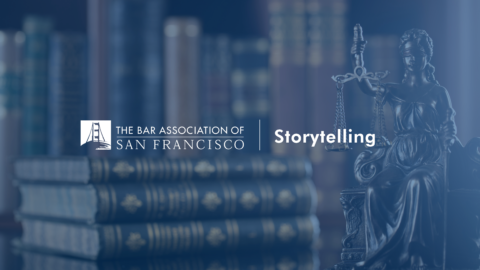
If you had asked me ten years ago whether I would be doing pro bono work with any regularity, a candid answer would have begun with “no.” Law firm lawyers, particularly litigators, find it easy to say “no.” No you can’t have those documents. No you have not complied with this or that rule or regulation. No way that exhibit is coming in. No, this case will never settle. No, I don’t have enough time for paying clients, never mind pro bono.
Early newspaper accounts made sure to emphasize her looks, A year after my hypothetical “no,” I actually answered “yes,” taking the helm of a brand new venture at UC Hastings College of the Law: the pro bono appellate clinic we named the UC Hastings Appellate Project. Our goal was to form a clinic participating exclusively on appeals, and the Ninth Circuit’s pro bono program seemed the ideal platform. The idea was to staff an appeal with two third-year law students, supervise their review of the record and drafting of the briefs, and have one of the students argue the appeal. None of this was new in the greater law school context, but a dedicated appellate clinic was new to Hastings, and to everyone involved: the clinic’s founder and my supervisor at Hastings, Antoinette Young, my tireless assistant director for the project, Stephen Tollafield, and to me. We were pretty sure we could do it, but we were far from sure how it would go.
It has gone well. Since its inception, we have handled 26 pro bono appeals in a wide array of matters, obtaining reversal in more than half of them. We have obtained published Ninth Circuit opinions too. But it’s not the numbers or success rate that is the reason for writing this article. It’s what we didn’t know or fully realize, when we started.
 We didn’t know just how much need there was, in the Ninth Circuit pro bono program alone. We didn’t fully appreciate just how much the justice system chews up and spits out the unrepresented, every day. We didn’t know that our Hastings students would bring so much passion to their clients’ lives and causes, often arguing their appeals and filing post-decision petitions well beyond the academic school year — even while studying for the bar exam. We didn’t know how righteous it would feel walking away from the Ninth Circuit each time, knowing we had taken our best shot for our pro bono clients.
We didn’t know just how much need there was, in the Ninth Circuit pro bono program alone. We didn’t fully appreciate just how much the justice system chews up and spits out the unrepresented, every day. We didn’t know that our Hastings students would bring so much passion to their clients’ lives and causes, often arguing their appeals and filing post-decision petitions well beyond the academic school year — even while studying for the bar exam. We didn’t know how righteous it would feel walking away from the Ninth Circuit each time, knowing we had taken our best shot for our pro bono clients.
We didn’t know that we could make so much of a difference — even when we lose — in the lives of the unrepresented. Perhaps we should have known.
As pro bono turns ten at the UC Hastings Appellate Project, the Three Dog Night song “Easy to Be Hard” comes to mind: “Easy to be hard; easy to be cold; easy to be proud; easy to say no.” Luckily, the leadership of the law firms I’ve been part of, particularly Hanson Bridgett, have always made it easy to say “yes” to pro bono. Luckily, for some reason, I said “yes” ten years ago to the notion of an appellate clinic at Hastings when all that jumped to mind was more responsibility, more work.
So if you’re reading this, and you have been thinking about pro bono, go ahead and try something new. Say “yes” next time somebody asks. We are all needed more than ever.
Gary A. Watt chairs the Appellate Practice at Hanson Bridgett, is Director of The Hastings Appellate Project, and is a State Bar approved certified appellate specialist. gwatt@hansonbridgett.com and www.appellateinsight.com



